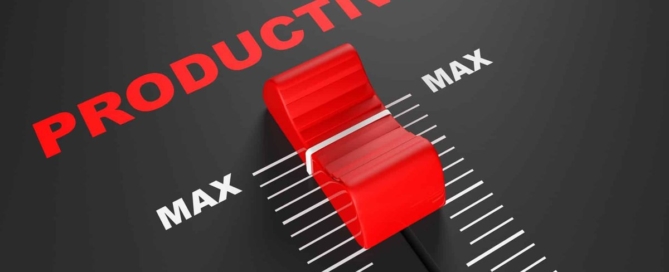How to Increase Your Productivity

Figuring out Your Best Times
Keep a log over a week or two about how you’re feeling throughout the day: morning, mid-morning, noon, early afternoon, mid-afternoon, late afternoon, early evening, evening, late evening. Try to note your energy level, work productivity, concentration, fatigue, distraction level, and so forth. The more detail you notice, the more helpful it will be to you.
You might also want to think about these things: do you absolutely need your coffee in the morning? Do you crash after lunch? Do you get a second (or third) wind later on in the day?
Of course, you also need to factor in children, pets, and other obligations or jobs you might have in your schedule.
When you think you might have an idea of your most productive time, try waking up earlier or going to bed later, to see how it affects you. Experiment with a nap in the afternoon if you can, or a quick walk around the block – does this affect your productivity later on, or your focus? What about healthy snacks or increasing water consumption; does this boost your energy, and hence productivity?
Once you find out your optimal times for doing work, try to arrange your schedule so that tasks that require more concentration and focus are ready to be worked on during that time. This might mean running errands or answering emails at “off-peak” times, or working on less challenging tasks as a sort of warm-up before really diving in.
Don’t forget to take small breaks throughout the day – not email or social media time, either. I mean taking a walk around the block or to the mailbox with an extra 5 minutes of deep breathing, or doing a quick 5 or 10 minute meditation, or getting up from your desk, away from screens, and walking the dog or drinking a glass of water. A short break can help prevent monotony and allow your brain (and body) to recharge.
What are your best times to work? What are you hacks that you do to maximize your productivity?
Did you know that in addition to editing, formatting, and statistics assistance, Dissertation Editor also offers coaching and consultations? If you're feeling stuck with your progress, don't know where to start, or need to make a plan, we can help! Contact us today to see how we can be of assistance with your project. < Need a Break? Check out these Movies Based on Books Thoughtful Thursday: The Benefits of Music >
Tagged under: Dissertation Writing General Dissertation Graduate School productivity hacks professional services